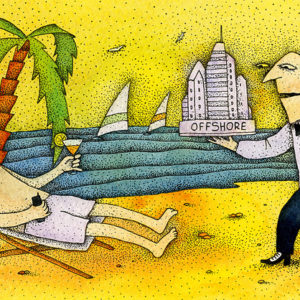Financial Accounting Standards Board Considers Shining a Light on Corporate Tax Practices
On March 17, Richard Phillips of the Institute on Taxation and Economic Policy (ITEP) and I traveled to Norwalk, Connecticut to participate in a roundtable discussion at the Financial Accounting Standards Board (FASB). This is a little-known, but highly influential body that sets the accounting standards for U.S. companies. The morning discussion focused on a proposal to increase disclosures on corporate financial statements, including new disclosures on revenues and taxes on a country-by-country level. This information is critically important if we are to tackle the problem of offshoring profits in tax havens.
We heard several participants assert that, before any new disclosures are required, board members must ensure they know why it is being required and for what the users of the information will use it. Fair questions.
Unfortunately, I am not sure the discussion on tax disclosures adequately answered them. The focus was more theoretical and principle-based with a heavy reliance on accountant-speak. I greatly appreciated the opportunity to participate, but I confess that I did not fully take the opportunity to offer an alternative perspective. Since hindsight is 20/20, here is what I should have said.






